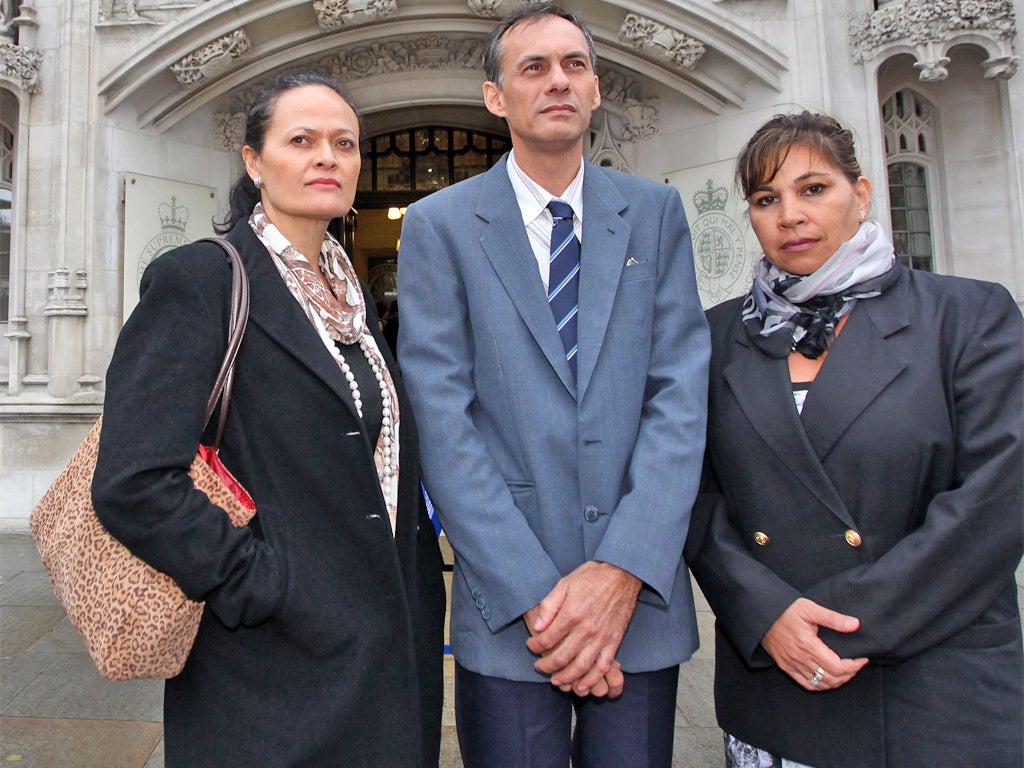Century-old battle over tiny plot of land in the Cook Islands comes to Britain

Colonel Walter Gudgeon, like most colonials of his time, was a firm believer that prosperity lay in the transfer of land from the “lazy” Maoris to industrious British settlers.
But, upon appointment as Chief Land Judge of the Cook Islands in 1898, he knew better than to enrage the powerful Ariki tribe, who ruled over the island with fear.
Makea Ariki Takau, one of the tribe’s most powerful elders, may have been, according to the colonel “a greedy, avaricious woman” but he wanted “neglected” plots to be leased to white planters and the Ariki was willing to agree.
So on 3 June 1903, Col Gudgeon ordered the hand over of a 53 acre plot – set by a lagoon on the south side of the main island – to Makea Ariki Takau. The land orders stated “life interest only no power of device” – meaning it would transfer back to previous owners upon her death – but these words were later mysteriously crossed out without the judge's signature.
This week those very same documents will go before the Privy Council in London to try and settle a 109-year-old dispute over a tiny plot of land set in the South Pacific 10,000 miles away.
It was during Makea Ariki Takau's forty year reign that the Cook Islands became a British protectorate before being annexed to New Zealand from 1900 to 1965 when it became self-governing. But its final court of appeal – along with 28 other Commonwealth and British Overseas Territories – still rests with the Judicial Committee of the Privy Council, staffed by the same judges who sit in the Supreme Court.
Today descendants of two families and their lawyers will appear before the court to argue over land they both claim as theirs.
June Baudinet, 67, is insisting that the plot should have gone back to her great grandfather, Ngati Raina, chief of another Cook Islands tribe, Mata'iapo upon Makea Ariki Takau's death.
“To me the wrong was done to my people, my ancestors,” she explained. “It is very important for me to get justice for my ancestors.”
She is appealing a previous court decision made in favour of Ellena Tavioni and the Macquarie family – both descendant of Kopu Ariki, who now own the land. They insist that before 1903 it was their land and Makea Takau actually took it.
“This is extremely important. This is our heritage, our history. When the missionaries first arrived it was our family land,” said Ellena Tavioni today.
John Woods, managing editor of the Cook Islands News, described the historic appearance of a land case before the Privy Council as “a huge event for our tiny nation”.
Ross Holmes, the lawyer representing Ms Baudinet, a local business woman running tourist accommodation, a jewellery shop and a supermarket, insists that the land historically belonged to the Mata'iapo. They did not question the original decision by Col Gudgeon, a New Zealander who was appointed British Resident and Chief Land Judge, because they feared the Ariki.
“Makea Ariki Takau was a powerful woman,” he explained. “Gudgeon needed to butter her up in order to have his policies implemented. The Ariki had agreed to lease their land to the Europeans.”
The case has bounced back and forth between the local courts for more than a century. Most recently,
in 2008 Justice Kenneth Hingston in the High Court amened the sealed order from a century before in favour of Ms Baudinet.
But last year Sir Ian Barker of the Court of Appeal reversed the ruling. Now Ms Baudinet is appealing, arguing that Sir Ian made the motion without the jurisdiction to do so.
Tina Browne, representing the respondents, said: “Our concern is we may be opening up all sorts of orders made 100 years ago where nobody is alive to say what happened.”
Join our commenting forum
Join thought-provoking conversations, follow other Independent readers and see their replies
Comments
Bookmark popover
Removed from bookmarks